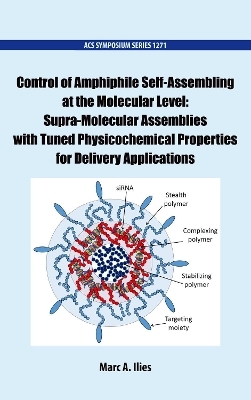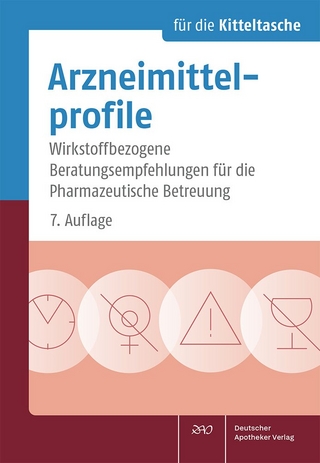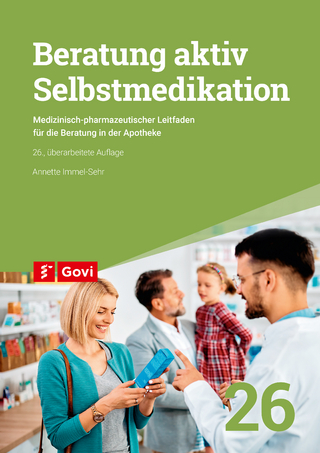
Control of Amphiphile Self-Assembling at the Molecular Level
Oxford University Press Inc (Verlag)
978-0-8412-3274-7 (ISBN)
- Keine Verlagsinformationen verfügbar
- Artikel merken
therapeutic effect associated with cargo delivery. Different chapters of the book present delivery systems made out of large variety of amphiphiles, including simple surfactants, gemini surfactants, pseudo-gemini surfactants, lipids, lipophilic polycations, dendrimers, natural and synthetic polymers
and their conjugates.
The book brings together contributions from researchers relying on both strategies, aimed to foster a more cohesive understanding on how structure, packing parameter, physicochemical and interfacial properties of individual amphiphiles affect their self-assembling, loading, dynamic stability and release properties, in vitro and in vivo. These contributing authors are from the U.S., Europe and Asia, all of whom are at the forefront of their fields of study, providing the reader an up-to-date,
broad perspective on the latest concepts and technologies related with design, synthesis and characterization of amphiphile self-assemblies and their use as delivery systems for drugs and nucleic acids.
Dr. Marc A. Ilies is an Associate Professor in the Department of Pharmaceutical Sciences of Temple University School of Pharmacy in Philadelphia, USA. His research interests lie in the broadly defined area of bio-organic and medicinal chemistry/chemical biology at membrane interfaces, where he combines heterocyclic chemistry and drug design, materials sciences and pharmaceutical sciences to generate novel therapeutic entities with a high therapeutic index. Dr. Ilies has authored more than 65 publications, which have been cited over 2200 times, with an H index of 25. He teaches graduate-level courses in Biochemistry, Medicinal Chemistry and Advanced Drug and Gene Delivery Systems, and he is a member of the editorial board of four peer-reviewed journals on these topics.
Preface
1. Synthetic Delivery Systems for DNA, siRNA, and mRNA Based on Pyridinium Amphiphiles
2. Designing Polymer Micelles of Controlled Size, Stability, and Functionality for siRNA Delivery
3. Utilizing Cholesterol Nanodomains for Nucleic Acid Delivery
4. In Silico Self-Assembly of Nanoparticles with Applications in Drug Delivery
5. Characterizing PEG Chains Tethered onto Micelles and Liposomes Applied as Drug Delivery Vehicles Using Scattering Techniques
6. Strategies for Functionalizing Lipoprotein-Based Nanoparticles
7. Rationally Controlled Self-Assembly Behavior of Inorganic-Organic Hybrids in Solution
8. Sn2 Lipase Labile Prodrugs and Contact-Facilitated Drug Delivery for Lipid-Encapsulated Nanomedicines
9. Interface-Engineered Amphiphilic Block Copolymers with Tuned Enzymatic Resistance for Controlled Delivery of Chemotherapeutic Drugs
10. Biocompatible Nanoparticles for Selective Drug Release at Cancer Cells
11. Inverse Flash NanoPrecipitation for Biologics Encapsulation: Nanoparticle Formation and Ionic Stabilization in Organic Solvents
12. Inverse Flash NanoPrecipitation for Biologics Encapsulation: Understanding Process Losses via an Extraction Protocol
13. Engineered Cell Penetrating Peptides
Editor's Biography
Indexes
| Erscheinungsdatum | 16.03.2018 |
|---|---|
| Reihe/Serie | ACS Symposium Series |
| Zusatzinfo | 109 halftones; 30 line art |
| Verlagsort | New York |
| Sprache | englisch |
| Maße | 163 x 232 mm |
| Gewicht | 726 g |
| Themenwelt | Medizin / Pharmazie ► Pflege |
| Medizin / Pharmazie ► Pharmazie ► PTA / PKA | |
| Naturwissenschaften ► Chemie ► Physikalische Chemie | |
| ISBN-10 | 0-8412-3274-1 / 0841232741 |
| ISBN-13 | 978-0-8412-3274-7 / 9780841232747 |
| Zustand | Neuware |
| Informationen gemäß Produktsicherheitsverordnung (GPSR) | |
| Haben Sie eine Frage zum Produkt? |
aus dem Bereich


